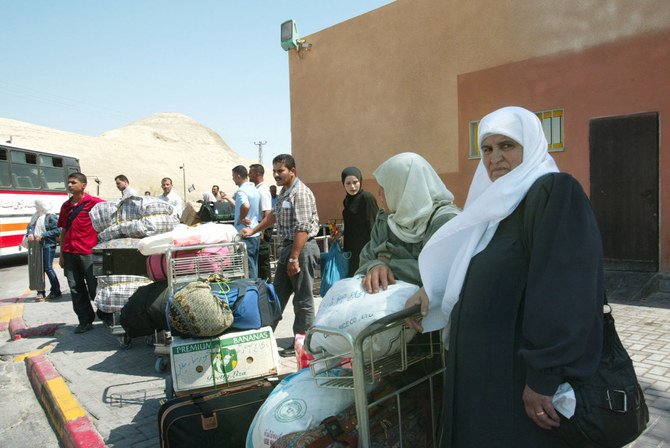
- ARAB NEWS
- 12 Jul 2025

The issue and future of Jerusalem have been a focus of attention for years and especially since the 1967 Israeli occupation.
Palestinians in Jerusalem have boycotted Israeli municipal elections aimed at a forced unification of the city. Although there was opposition to political unification, the situation of East Jerusalem Palestinians was initially prosperous. They enjoyed almost all the social benefits that Israeli citizens enjoyed, but remained politically absent from Israeli politics since they were permanent residents and largely not citizens of Israel.
The Palestinian-Israeli Declaration of Principles signed at the White House in 1993 created a new reality under which East Jerusalem’s Palestinians have become political orphans, even though their city is declared to be the capital of the future Palestinian state. They are not Israelis, and they are not allowed to work with or receive any money or cooperation from the Palestinian government in the temporary capital of Ramallah.
The new Israel-PLO relationship, although largely one-sided, has meant that Palestinians from the Occupied Territories minus East Jerusalem are given passports and have a government of sorts that defends them and their rights, while the Palestinians of Jerusalem, numbering almost 350,000, are left without any form of representation.
Any attempt to forge a relationship with the Palestinian leadership in Ramallah is fought against tooth and nail by Israel. The Palestinian-appointed minister of Jerusalem affairs is frequently arrested and warned against acting in any political way in representing the holy city’s Palestinians.
The absence of any electoral representative process has added to the problem. The last effort to hold legislative elections in the Occupied Territories was cancelled in April 2021 because of Israel’s refusal to allow Jerusalemites to participate — an act agreed to in the Oslo accords.
Jordan, whose Hashemite leadership is the custodian of Muslim and Christian holy places in Jerusalem, has recently attempted to fill this gap by appointing an array of Jerusalemites on the Jerusalem waqf council. But the council’s main job is to protect the Islamic holy site, and it is unwilling to deal with any political issues outside its mandate.
Any attempt to forge a relationship with the Palestinian leadership in Ramallah is fought against tooth and nail by Israel
Daoud Kuttab
This conundrum has forced Palestinians to organize themselves and address day-to-day issues, some of which have been solved internally, while others require external involvement and are difficult to deal with in a public manner.
However, recent overcrowding at the King Hussein Bridge has forced many, including Jerusalemites, to think outside the box.
On July 27, 176 prominent Palestinian Jerusalemites, including this writer, took the unusual step of signing a letter to the Jordanian Prime Minister Bisher Al-Khasawneh regarding ways to ease the travel difficulties. The letter, which was sent to the Jordanian representative in Ramallah, called on Jordan to revisit an unexplained decision to bar Jerusalemites from using the northern Sheikh Hussein Bridge.
The bridge opened after the 1994 Jordan-Israel peace treaty and is open for use by foreigners and Israelis, as well as permanent residents in Israel, which means Jerusalem’s Palestinians. They are allowed to travel with or without their cars to Jordan. However, a few years ago Jordan stopped Jerusalemites from using the bridge, leaving them with the difficult choice of either using the expensive King Hussein Bridge or flying out of Israel’s Lod airport.
The letter called on the Jordanian government to reopen the Sheikh Hussein Bridge to Jerusalemites, allowing them to enter Jordan in their cars and with their families. Such a decision would be a boon to Jordanian tourism and would have no political cost since the southern border crossing continues to allow Jerusalemites to enter.
The letter was endorsed by community leaders, including religious, social and political figures. It is not known how the government of Jordan will react, but the key here is that Jerusalem’s Palestinian population is taking steps to solve its day-to-day problems instead of waiting for a solution to the Palestinian-Israeli conflict which neither the Israeli occupiers nor their US patrons and European friends appear in any hurry to resolve.
• Daoud Kuttab is an award-winning Palestinian journalist from Jerusalem. Twitter: @daoudkuttab